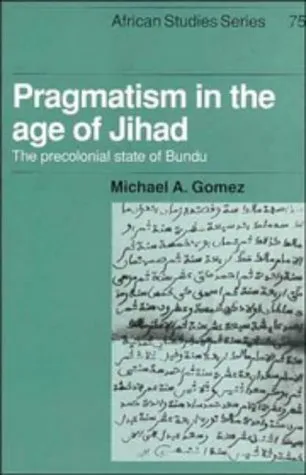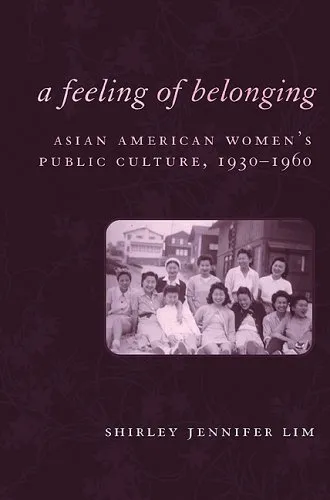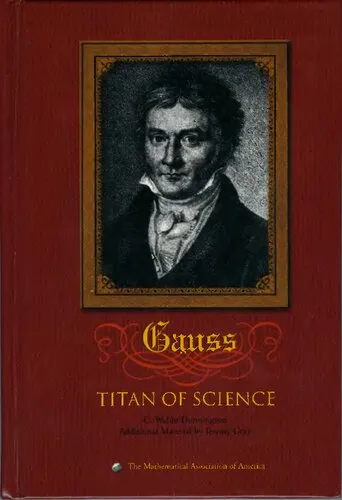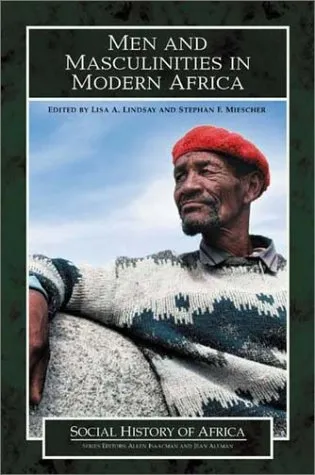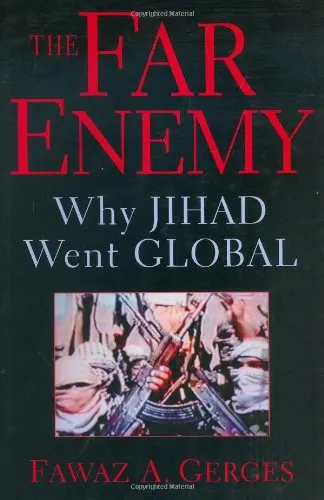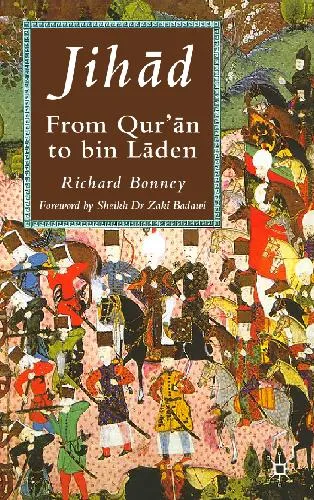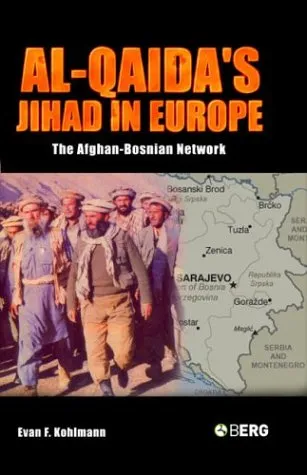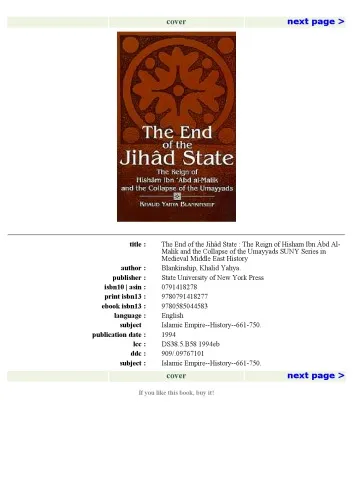Pragmatism in the Age of Jihad: The Precolonial State of Bundu (African Studies)
4.0
بر اساس نظر کاربران

شما میتونید سوالاتتون در باره کتاب رو از هوش مصنوعیش بعد از ورود بپرسید
هر دانلود یا پرسش از هوش مصنوعی 2 امتیاز لازم دارد، برای بدست آوردن امتیاز رایگان، به صفحه ی راهنمای امتیازات سر بزنید و یک سری کار ارزشمند انجام بدینکتاب های مرتبط:
معرفی کتاب "Pragmatism in the Age of Jihad: The Precolonial State of Bundu (African Studies)"
کتاب Pragmatism in the Age of Jihad: The Precolonial State of Bundu نوشته مایکل ای. گومز، به یکی از دورههای مهم و پیچیده تاریخ قرون وسطی در آفریقا میپردازد. این کتاب به تحلیل عمیق شکلگیری، توسعه و منش پراگماتیک دولت پیشاستعماری بوندو و تأثیر جهاد اسلامی در منطقه میپردازد. در ادامه، کتاب در زمینههای تاریخی، سیاسی و اجتماعی مطالعهای جامع و جذاب ارائه میدهد.
خلاصهای از کتاب
این اثر پژوهشی بررسی میکند که چگونه دولت بوندو (Bundu)، یک دولت اسلامی در غرب آفریقا، تحت فشار نیروهای مذهبی، اقتصادی و اجتماعی توسعه یافت. مایکل ای. گومز نشان میدهد که چگونه نیاز به سازگاری با واقعیتهای منطقهای و جهانی منجر به نوعی پراگماتیسم در مدیریت دولت بوندو شده است. این کتاب تأکید میکند که جهاد نه تنها بهعنوان یک مفهوم مذهبی، بلکه بهعنوان عامل نظامساز سیاسی و اقتصادی در آفریقا عمل کرده است و تغییرات گستردهای را در جوامع این منطقه ایجاد نموده است.
نویسنده به بررسی نحوه تعامل دولت بوندو با نیروهای داخلی و خارجی میپردازد. از جمله موضوعات مهم مطرحشده در این کتاب، بررسی روابط بین رهبران جهاد و سایر جوامع اسلامی است که بیانگر وجود تنشها و اتحادهای پیچیده در این دوره میباشد. علاوه بر این، گومز نشان میدهد که چگونه بوندو به دلیل همزیستی با نیروهای استعماری در مرحلهای حساس از تغییرات ساختاری منطقهای قرار گرفت.
ایدههای کلیدی کتاب
- تأثیر جهادهای اسلامی بر تشکیل و توسعه دولتهای پیشاستعماری آفریقایی.
- نقش پراگماتیسم در مدیریت دولت بوندو و رابطه آن با نیروهای داخلی و خارجی.
- روابط تنشآمیز و همزمان هماهنگیهای سیاسی میان گروههای اسلامی فعال در منطقه.
- نقش اقتصاد در تطبیق دولتهای پیشاستعماری با نیازهای اجتماعی و سیاسی.
- تحلیل تأثیرات نیروهای استعماری اروپایی و برخورد آنها با جهاد و دولت اسلامی بوندو.
نقلقولهای مشهور از کتاب
"در جهانی که تغییرات سریع اجتماعی و اقتصادی آن را تعریف میکنند، دولت بوندو نمادی از انعطافپذیری و قدرت تطبیق در هماهنگی با آموزههای اسلامی و واقعیتهای جغرافیایی خود بود."
"جهاد در آفریقا تنها یک جنبش مذهبی نبود، بلکه ابزاری حیاتی برای بازتعریف مرزهای سیاسی و ساختارهای اجتماعی محسوب میشد."
چرا این کتاب مهم است؟
این کتاب از منظر تاریخی، نقش کلیدی جهاد و سیاستهای دولتهای اسلامی آفریقا را در ترسیم نقشه سیاسی و اقتصادی پیش از استعمار بررسی میکند. Pragmatism in the Age of Jihad نگاهی کمیاب به تعاملات میان نیروهای مذهبی و واقعیات سیاسی ارائه میدهد که برای درک پیچیدگیهای تاریخ پیشاستعماری آفریقا بسیار حائز اهمیت است. کتاب همچنین برای پژوهشگران علاقهمند به تاریخ اسلامی، جغرافیای سیاسی و استعماری و همچنین نقش مذاهب در ساختارهای اجتماعی جذابیت ویژهای دارد.
بدون تردید، این اثر به دلیل جزئیات دقیق تاریخی و تحلیل جامع، یکی از مهمترین و تاثیرگذارترین آثار در زمینه مطالعات آفریقایی و اسلامی است. با تمرکز بر قدرت تطبیق و مدیریت دولتی، این کتاب برای کسانی که به دنبال درک عمیقتر از نقش دین و سیاست در زمینۀ تاریخ جهانی هستند، توصیه میشود.
Introduction
"Pragmatism in the Age of Jihad: The Precolonial State of Bundu (African Studies)" is a comprehensive exploration into the socio-political and religious complexities of Bundu, a precolonial Islamic state in West Africa. Written by Michael A. Gomez, the book illuminates the pragmatic strategies employed by Bundu's leaders as they navigated the challenges of governance, spiritual leadership, and survival during the age of jihad in Africa. Set against the backdrop of a period when Islamic expansion and socio-political transformations were sweeping through the Sahel, the book offers a nuanced and incisive examination of Bundu’s rise and its subsequent evolution. Through meticulous historical analysis, Gomez brings to life a compelling narrative that challenges oversimplified perspectives of African societies during this era and showcases their adaptability and resilience.
By focusing on Bundu, a relatively understudied yet significant state, the book provides valuable insights that extend beyond the confines of regional African history. It bridges the intricate interplay of religion, politics, and economics, offering readers a deep understanding of how Bundu’s leaders balanced these forces to maintain their sovereignty amidst regional tensions and the broader currents of Islamic reform. Whether you are a historian, student, or simply someone interested in the dynamics of African precolonial societies, this book provides a fresh and thought-provoking interpretation of a complex historical period.
Detailed Summary
"Pragmatism in the Age of Jihad" delves into the history of Bundu, a state forged during the eighteenth and nineteenth centuries in what is now Senegal. As an Islamic state, Bundu played a pivotal role in shaping regional identity and politics during a time marked by the rise of jihad movements across West Africa. Gomez examines how Bundu’s rulers pursued pragmatic policies to navigate external pressures from neighboring states, internal social divisions, and the growing influence of jihadist ideologies.
The author traces Bundu’s founding by Fulani migrants and highlights its transition into a symbolic and practical center of Islamic reform. Gomez then interrogates the role of charismatic leadership, trade networks, and Bundu’s strategic geographical positioning in ensuring its survival and growth. Central to the narrative is the tension between religious ideals and political pragmatism, as Bundu’s leaders strived to maintain Islamic ethical standards while engaging in administrative compromises with surrounding powers. The book also explores the importance of trade, environmental factors, and local customs as mediators of change, offering readers a holistic lens through which to understand Bundu’s development.
Key Takeaways
- Bundu exemplified the fusion of Islamic religiosity and pragmatic political strategies in a precolonial African context.
- The state’s leaders skillfully balanced religious reform with the realities of governance, showing how ideological movements are often tempered by practicalities.
- Detailed examination of trade and economic practices illustrates the interconnectedness of African societies with broader regional economies.
- The book challenges stereotypes of precolonial African societies as static or monolithic, emphasizing their dynamism and adaptability.
Famous Quotes from the Book
"Bundu was not merely a state; it was a vision, shaped by the confluence of faith and necessity, where the ideals of jihad met the realities of survival."
"In the age of jihad, Bundu stood as a testament to how faith could guide but not dictate the pragmatics of leadership in a contested landscape."
"Pragmatism was not a betrayal of religious ideals but a reification of them in the evolving pressures of Bundu's political ecosystem."
Why This Book Matters
"Pragmatism in the Age of Jihad" provides a pioneering analysis of Bundu, a state often overlooked in scholarly discourse. It offers readers a template for understanding how African societies, far from being mere recipients of external influences, actively shaped their histories through agency and adaptation. The book breaks down prevailing misconceptions about African states during this period, demonstrating their sophistication in governance, economy, and religious life.
Additionally, the work of Michael A. Gomez situates Bundu in the context of broader historical processes such as Islamic reform movements and the trans-Saharan trade, thus making it relevant to African studies, Islamic studies, and world history. It fills critical gaps in the literature, encouraging readers to reevaluate the dominant paradigms through which African history is interpreted. Lastly, the book provides timeless lessons about how flexible leadership and the ability to adapt to changing circumstances remain key pillars of any successful state.
دانلود رایگان مستقیم
شما میتونید سوالاتتون در باره کتاب رو از هوش مصنوعیش بعد از ورود بپرسید
دسترسی به کتابها از طریق پلتفرمهای قانونی و کتابخانههای عمومی نه تنها از حقوق نویسندگان و ناشران حمایت میکند، بلکه به پایداری فرهنگ کتابخوانی نیز کمک میرساند. پیش از دانلود، لحظهای به بررسی این گزینهها فکر کنید.
این کتاب رو در پلتفرم های دیگه ببینید
WorldCat به شما کمک میکنه تا کتاب ها رو در کتابخانه های سراسر دنیا پیدا کنید
امتیازها، نظرات تخصصی و صحبت ها درباره کتاب را در Goodreads ببینید
کتابهای کمیاب یا دست دوم را در AbeBooks پیدا کنید و بخرید
1424
بازدید4.0
امتیاز0
نظر98%
رضایتنظرات:
4.0
بر اساس 0 نظر کاربران
Questions & Answers
Ask questions about this book or help others by answering
No questions yet. Be the first to ask!
